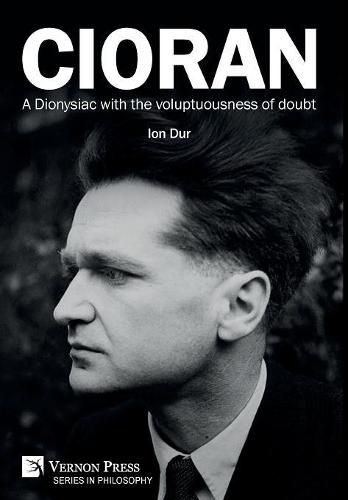Readings Newsletter
Become a Readings Member to make your shopping experience even easier.
Sign in or sign up for free!
You’re not far away from qualifying for FREE standard shipping within Australia
You’ve qualified for FREE standard shipping within Australia
The cart is loading…






This title is printed to order. This book may have been self-published. If so, we cannot guarantee the quality of the content. In the main most books will have gone through the editing process however some may not. We therefore suggest that you be aware of this before ordering this book. If in doubt check either the author or publisher’s details as we are unable to accept any returns unless they are faulty. Please contact us if you have any questions.
Since its inception philosophical thought has been fixated by death. Death, as much as life, has been the unrelenting driving force behind some of history’s greatest thinkers. Yet, for Emil Cioran, a Romanian-French philosopher, even philosophy cannot attempt to understand nor contain the inevitable unknown.
Considered to be an anti-philosopher, Cioran approached and reflected on the human experience with a despairing pessimism. His works are characterised by a brooding, fatalistic temperament that reveals and defines itself in his irony, black humour and inimitable style. Although Cioran’s later works have received much scholarly recognition, little attention has been paid to the texts he wrote in his adolescent.
Grounded in the historical context of interwar Romania, this book presents for the first time an analysis of the little-known works of this pioneering Romanian thinker. Deeply affected by his upbringing, this book offers a glimpse into Cioran’s first attempts to delve into philosophical enterprise, before turning its attention to his later works, On the Heights of Despair (1934), The Transfiguration of Romania (1936) and Twilight of thoughts (1940; written in France). Using both the French and Romanian editions of these works, but also their original manuscripts, this volume seeks to provide a re-reading that takes language rather than a social or political critique as its focal point. As an important and provocative contribution to the existing literature on Cioran, this book will be an essential point of reference for students and researchers, alike.
$9.00 standard shipping within Australia
FREE standard shipping within Australia for orders over $100.00
Express & International shipping calculated at checkout
This title is printed to order. This book may have been self-published. If so, we cannot guarantee the quality of the content. In the main most books will have gone through the editing process however some may not. We therefore suggest that you be aware of this before ordering this book. If in doubt check either the author or publisher’s details as we are unable to accept any returns unless they are faulty. Please contact us if you have any questions.
Since its inception philosophical thought has been fixated by death. Death, as much as life, has been the unrelenting driving force behind some of history’s greatest thinkers. Yet, for Emil Cioran, a Romanian-French philosopher, even philosophy cannot attempt to understand nor contain the inevitable unknown.
Considered to be an anti-philosopher, Cioran approached and reflected on the human experience with a despairing pessimism. His works are characterised by a brooding, fatalistic temperament that reveals and defines itself in his irony, black humour and inimitable style. Although Cioran’s later works have received much scholarly recognition, little attention has been paid to the texts he wrote in his adolescent.
Grounded in the historical context of interwar Romania, this book presents for the first time an analysis of the little-known works of this pioneering Romanian thinker. Deeply affected by his upbringing, this book offers a glimpse into Cioran’s first attempts to delve into philosophical enterprise, before turning its attention to his later works, On the Heights of Despair (1934), The Transfiguration of Romania (1936) and Twilight of thoughts (1940; written in France). Using both the French and Romanian editions of these works, but also their original manuscripts, this volume seeks to provide a re-reading that takes language rather than a social or political critique as its focal point. As an important and provocative contribution to the existing literature on Cioran, this book will be an essential point of reference for students and researchers, alike.